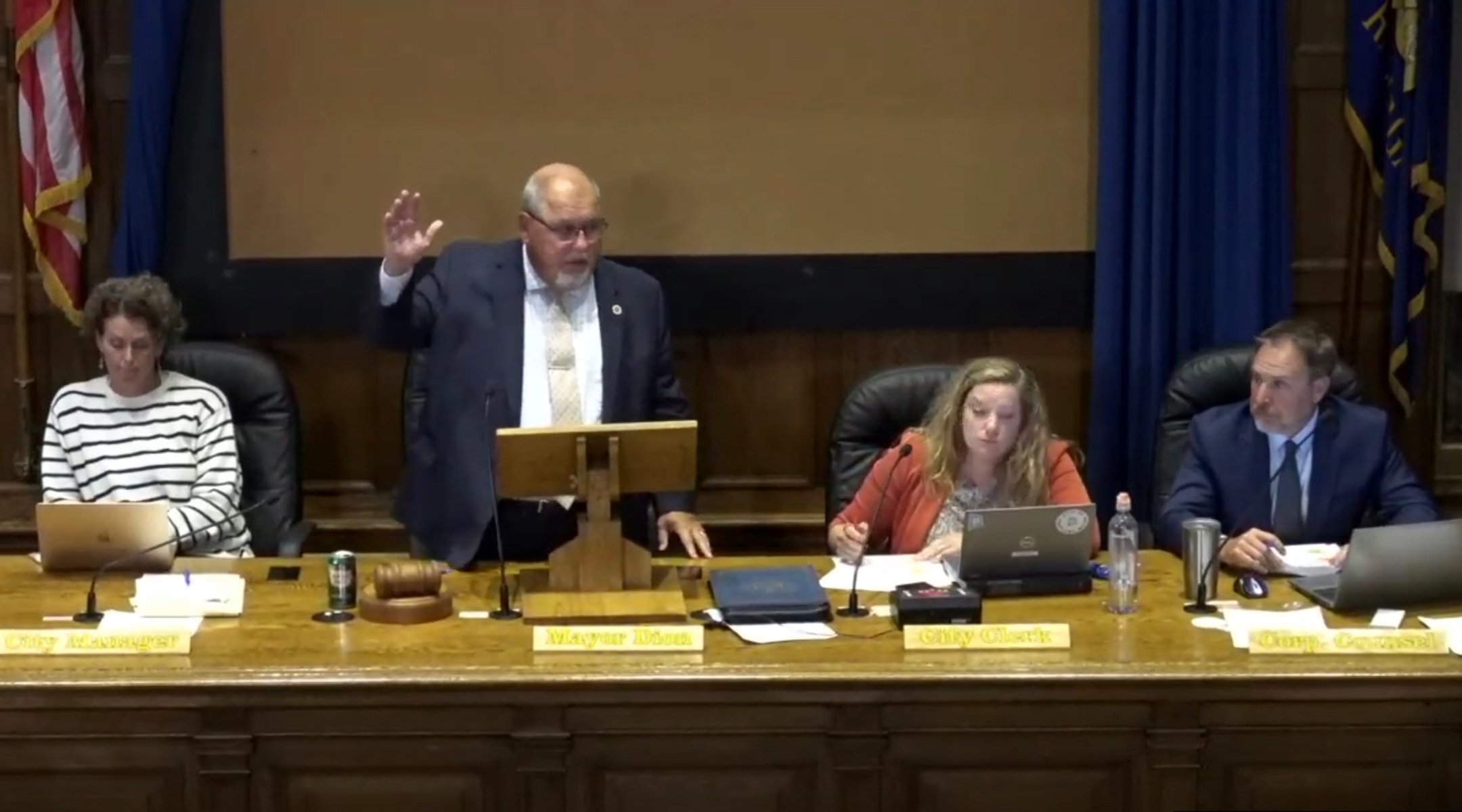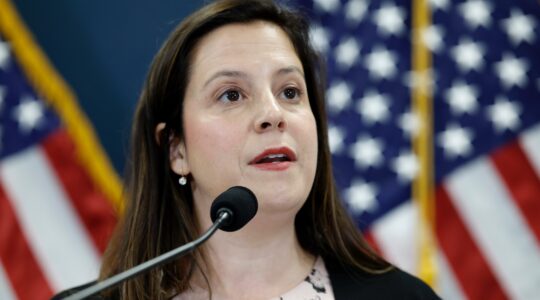Last month the mayor of Portland, Maine, shocked Jewish communities in his backyard and beyond when he expressed full-throated support for his city council’s successful resolution to divest from companies linked to Israel.
Now, Mayor Mark Dion is taking it all back.
“Upon personal reflection and following many private conversations I have had with our Jewish neighbors, I have come to the conclusion that my vote on the divestment was wrong,” Dion said during prepared remarks at Monday’s city council meeting.
He went on to call his stance on divestment “pretentious,” “a serious mistake in judgment” and “a betrayal to the trust that Jewish people should expect from the mayor’s office.” Dion concluded his remarks by giving what he called a “sincere apology” for his vote.
The about-face was another whiplash moment in the battle around divestment that has taken on new urgency since Israel’s war with Hamas began after the terror group’s Oct. 7, 2023, attacks last year. Many colleges and universities have seen deep divisions over divestment proposals, and local governments have experienced their share as well.
Portland became the fourth, and highest-profile, American municipality since last Oct. 7 to back some form of divestment when its council unanimously approved a plan in September to withdraw city funds from dozens of companies it said were “complicit in the current and ongoing humanitarian crisis in Gaza and occupation of Palestine.” Divestment proponents say the move is necessary to curb Israel’s retaliation in Gaza that has killed tens of thousands of people, and reduced most of the enclave to rubble.
The vote came over the stern objections of many in the local Jewish community, including the Jewish Community Alliance of Southern Maine, the local federation arm, which denounced the move as a “one-sided” and “performative gesture.” Local Jewish pro-Palestinian activists voiced support for it, with the Maine chapter of the anti-Zionist group Jewish Voice for Peace celebrating its passage.
At the time, the mayor supported divestment, calling it “the greatest act of friendship” and said it was the city’s role to “grab [Israel’s] shoulder and say, ‘It’s enough. It’s simply enough.’”
But the local government found, to their evident surprise, that the measure was almost entirely symbolic. Weeks after its passage, Portland council members said the city does not have any funds invested in the dozens of companies on its divestment target list and that “no divestment is expected to occur” as a result of the resolution. (When the resolution was first proposed months ago, city officials said, Portland did hold shares in a technology company that provides Israel with screening technology used at military checkpoints; the city sold those funds prior to the resolution’s passage.)
Both Dion and some council members told the Portland Press Herald this news came as a surprise to them, and that they had believed Portland to be more heavily invested in companies that do business with Israel when they backed the resolution.
“I guess on reflection, it’s a high price to pay to create division and anxiety in the community,” Kate Sykes, a council member who also backed the initial divestment vote, said afterward.
The local Jewish federation, which recently brought on its first permanent CEO, thanked the mayor for his apology.
“In his statement, Mayor Dion admits that the resolution, which he now believes was misguided, only served to marginalize Portland’s Jewish community — particularly those who view Israel as the homeland of the Jewish people,” the Jewish Community Alliance of Southern Maine wrote in a statement shared with the Jewish Telegraphic Agency. “We appreciate his honesty in recognizing the harm this caused and the difficulty of navigating these intricate issues in a local setting.”
In his apology, Dion echoed some long-standing Jewish communal criticisms of divestment measures, including that a local government has no business engaging in international matters. He also went further, saying that his support of the measure has damaged some relationships “which may never be repaired.”
He added, “I had not only failed to stay in my lane, but I went totally off the road.”
JTA has documented Jewish history in real-time for over a century. Keep our journalism strong by joining us in supporting independent, award-winning reporting.






